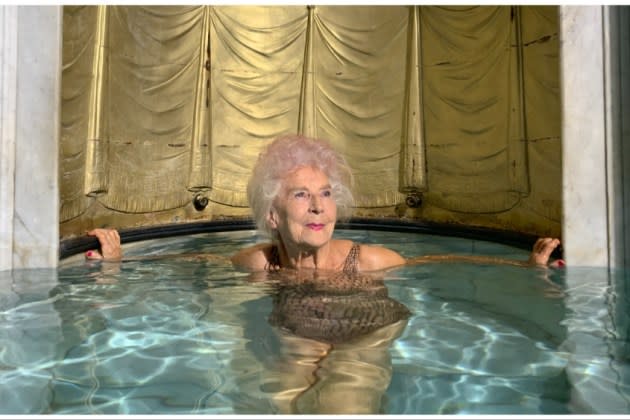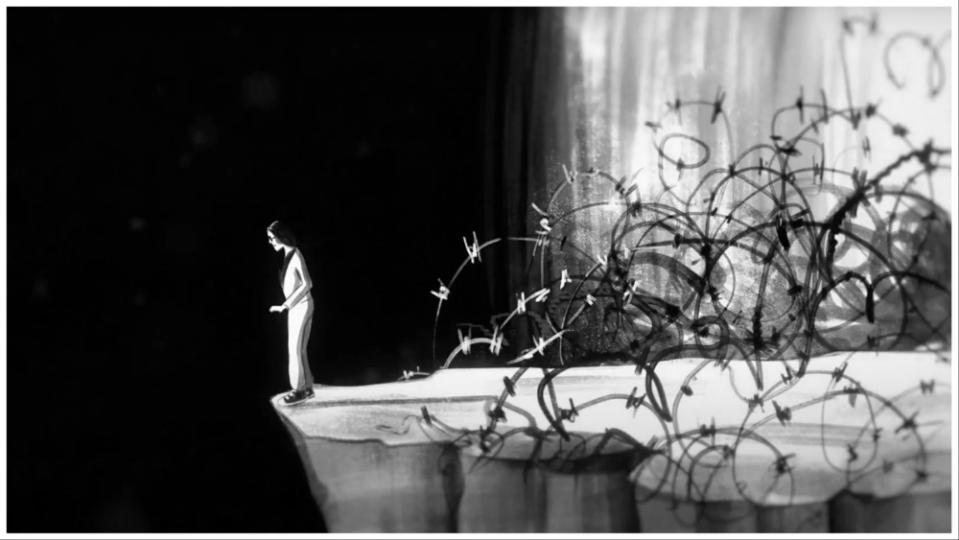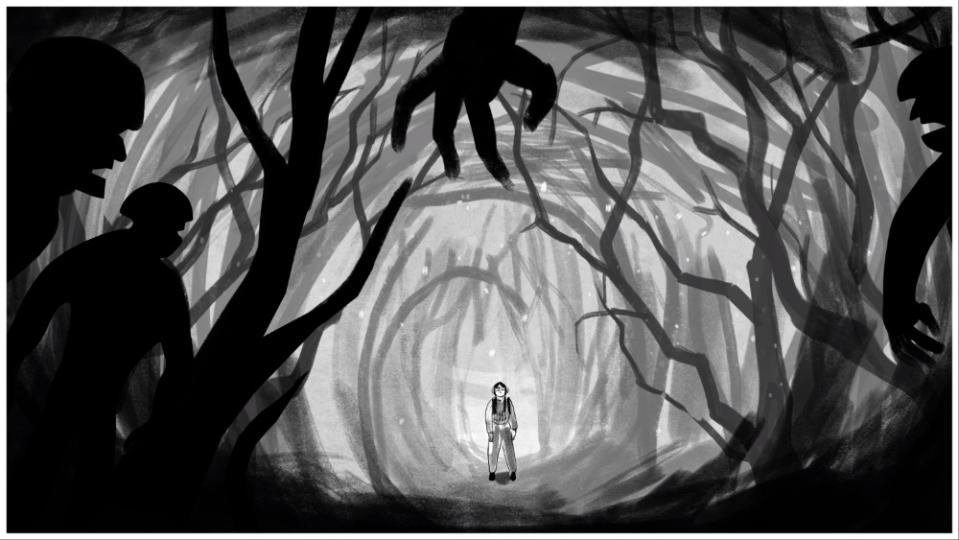Agnieszka Zwiefka Celebrates Poland’s Oldest DJ in ‘Vika!,’ Reveals First-Look Images of Upcoming Refugee Project (EXCLUSIVE)
- Oops!Something went wrong.Please try again later.

Following musical sequences in her latest doc “Vika!,” Polish director Agnieszka Zwiefka will turn to animation for an upcoming project under the working title “Runa.”
“What can I say? I really like fusion cuisine,” she laughs.
More from Variety
Czech Republic's Ji.hlava Doc Fest Launches Its Mission to Explore 'What Images Can We Trust?'
Petr Jancarek's 'Havel Speaking' Captures Czech Ex-President's Bittersweet Foray into Film Directing
'Olympic Halftime' Explores the Ruins of Vast Olympic Treasure Chests at Ji.hlava Doc Fest
“I like hybrid films, because this division between documentary and fiction is completely pointless. I see documentary as a very capacious bag. There is room for everything.”
Partially animated “Runa,” produced by Chilli Productions (Poland), Real Lava (Denmark) and Ma.ja.de (Germany) – with ARTE and SWR also on board – introduces a Kurdish girl who needs to care for her siblings after their mother dies on the Polish-Belarusian border.
“There is always strength in my characters and she’s probably the strongest one yet,” says Zwiefka, opening up about the film’s visual style developed by Yellow Tapir Films and Marcin Podolec.
“Our reference was ‘Persepolis.’ These black and white forms, almost childlike drawings that, in this case, are coming straight from Runa’s sketchbook. She would draw things that were really frightening. A girl on the edge of a precipice, ominous trees swallowing people, faces stretched in a silent scream.”
While taking on the same tragic events as Agnieszka Holland in controversial “Green Border,” Zwiefka is not worried about eliciting the same response.
“All we can do is continue making films as honestly as we can, because anyone can be judged. Sometimes inappropriately, superficially or because of a ‘controversial’ topic, and we have plenty of those in Poland right now,” she notes.

“It’s a different film, because it doesn’t talk about activists or rescue operations. It’s about one girl. Then again, I hope that when people watch it they will see more in her, even if they are against accepting refugees.”
Before taking that on, Zwiefka turns to a lighter topic in “Vika!” about Poland’s oldest DJ, now well in her 80s and partying like there is no tomorrow.
“It’s an ode to joyful old age. Women seem to accept the fact that once you reach a certain age, you become ‘invisible.’ When I turned 30, it seemed the world had ended. But you can grow old on your own terms. That’s what ‘Vika!’ is all about.”
Although her protagonist isn’t exactly shy, she still took some convincing.

“She likes attention, but only to a certain extent. When I reached out to her, I made it clear she would have to open up, that it would be a vivisection of privacy. She chased me away,” she admits.
“I wanted to go beyond the stage. What lies beneath the mask of this colorful bird? After a year, she understood that showing her loneliness and pain could actually help other seniors. And she is an activist. She wants her actions to have an impact on people.”
Despite the honesty, “Vika!” – produced by Katarzyna Ślesicka and Anna Stylińska, and sold by Deckert Distribution – is the only “feel-good doc” in Zwiefka’s career, she observes.
“That was the goal: for people to leave this film feeling just as elated as they do when they are leaving her party. Thinking: ‘Maybe how I age is up to me?’ We wanted to give them hope and show that old age can be beautiful. These bodies have various defects and wrinkles, but I show them like it’s Sorrentino’s ‘Youth.’ To me, she is beautiful. And she looks better in a swimsuit than some teenagers!”
Echoing her previous effort “The Queen of Silence” about a Roma girl with a soft spot for Bollywood, Zwiefka created musical sequences in the film.
“Vika lives in the world of music, it’s the language in which she expresses herself best. ‘I Will Survive’ is her message. There is no party without it,” says the director.
“When ‘The Queen of Silence’ came out, I kept hearing it wasn’t a ‘real’ documentary. ‘What’s the deal with all that dancing?’ I don’t hear that anymore. For me, a film is about seduction. You don’t lay all the cards on the table, you have to surprise your partner. Or your viewer.”
There is a need for feel-good documentaries, she says.
“As documentary filmmakers, we usually talk about traumas and I know how much these films cost. We get hit by the same gun as our characters. And yet we don’t talk about needing psychological support afterwards. We are supposed to deal with it ourselves.”
“These [lighter] films are the most difficult to make, because there are no spectacular breakthroughs, tragedies or wars. There is just everyday life. But we need them, because they are like a balm for our body.”
Best of Variety
Sign up for Variety’s Newsletter. For the latest news, follow us on Facebook, Twitter, and Instagram.

